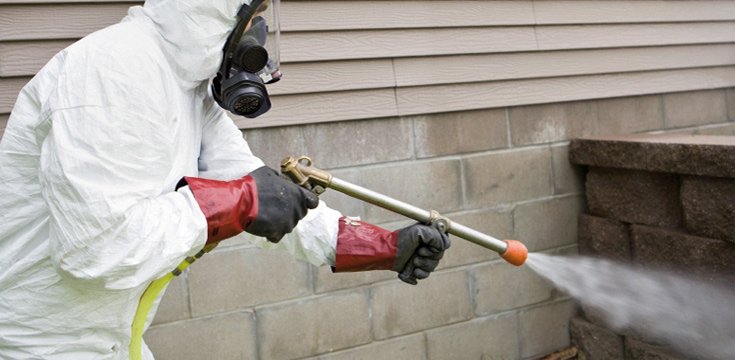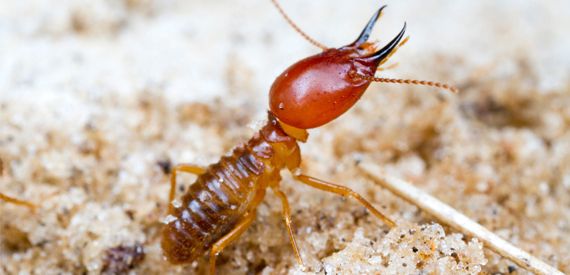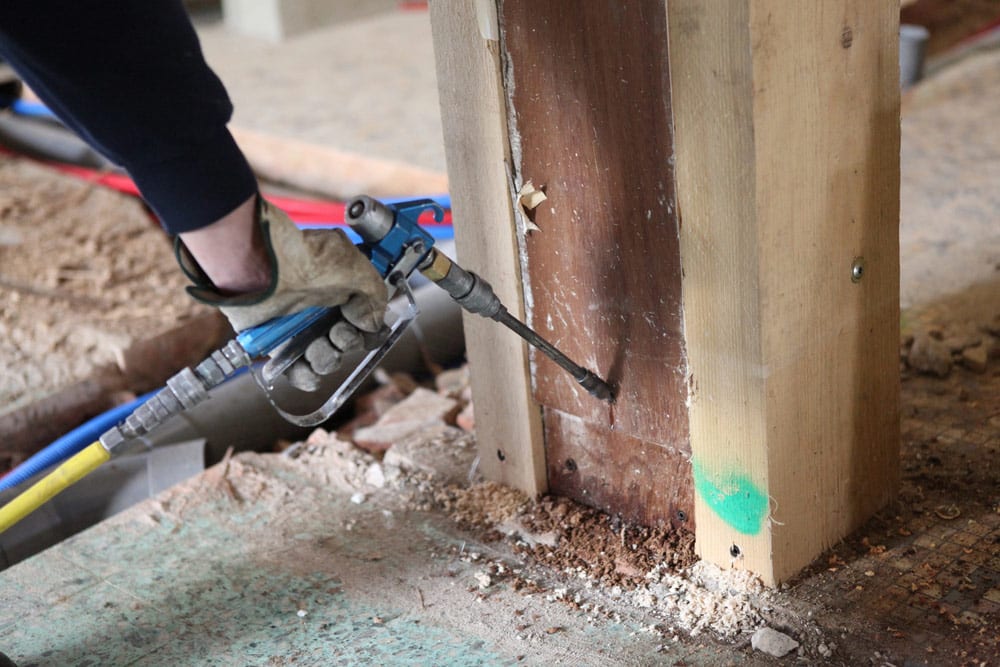Ecological Effect of Parasite Control: Harmonizing Efficiency With Sustainability
The ecological effect of pest control is a vital issue that needs a delicate balance in between achieving effectiveness in making sure and handling pests sustainability of our ecological communities. As we make every effort to secure our crops, homes, and wellness from the dangers postured by insects, the methods we employ can inadvertently damage the environment. From making use of dangerous chemicals that leak right into our soil and water to the unintended repercussions on non-target varieties, the effects of traditional bug control techniques are far-ranging. There are emerging strategies that supply hope for a more sustainable method to pest administration. These services not just purpose to deal with the instant insect issues but likewise take into consideration the long-lasting health of our earth.
Dangerous Chemicals in Parasite Control
The utilization of harmful chemicals in parasite control postures considerable ecological and health threats that necessitate mindful factor to consider and mitigation approaches. Herbicides, insecticides, and chemicals are commonly made use of to eradicate parasites, but their widespread application can bring about unintended repercussions. These chemicals can infect dirt, water sources, and the air, impacting not just the targeted insects but likewise advantageous bugs, wild animals, and people.

To deal with these threats, incorporated parasite administration (IPM) techniques are being promoted as a more lasting choice. IPM involves a combination of methods such as organic control, habitat control, and the targeted use chemicals as a last hope (ant control carrboro nc). By taking on an all natural approach to pest control, we can reduce the ecological and wellness influences linked with dangerous chemicals while efficiently taking care of pest populations
Influence On Non-Target Variety
Taking into consideration the unintended effects of pest control methods, the effect on non-target species is an important facet that needs thorough evaluation. While parasite control procedures aim to target certain parasites, other microorganisms in the ecological community might be accidentally impacted. Non-target species, consisting of advantageous pests, birds, mammals, and even plants, can suffer straight or indirect injury from chemical applications or organic control techniques.
Insecticides created to deal with a particular insect pest might damage pollinators like or all-natural predators such as ladybugs. Organic control agents, if not species-specific, can position dangers to unexpected targets, interrupting the ecological balance.
To alleviate the influence on non-target types, incorporated insect management (IPM) methods that highlight an alternative strategy to pest control are recommended. These approaches prioritize using eco friendly practices, lessening harm to useful organisms while successfully handling pest populaces. Performing complete threat analyses and checking the end results of pest control efforts are essential actions in securing non-target types and promoting overall community health.
Soil and Water Contamination
Unplanned ecological consequences of bug control techniques expand beyond impacting non-target species, with considerable implications for soil and water contamination. Chemicals, herbicides, and chemical plant foods used in pest control can seep into the soil and pollute groundwater, positioning a risk to both earthbound and marine environments. Dirt contamination can interfere with the balance of bacteria vital for vitamins and mineral cycling and plant development, bring about lowered dirt fertility and performance. In addition, these click here to read chemicals can continue the setting for extensive periods, building up in the dirt and potentially going into the food cycle.
Water contamination is an additional important concern related to insect control techniques. Runoff from agricultural areas treated with chemicals can carry these chemicals into close-by water bodies, influencing aquatic organisms and water quality. Impurities in water sources can have far-reaching effects, impacting not only marine life but likewise human wellness through the consumption of infected water or water microorganisms. To minimize dirt and water contamination from pest control tasks, integrated pest management techniques that focus on sustainability and decrease chemical inputs are important.
Air Contamination From Chemical Usage
Exposure to airborne chemicals during agricultural applications postures a considerable worry for air pollution control steps. Additionally, pesticide drift, where pesticides are carried by the wind to unexpected areas, can lead to the contamination of close-by communities and water bodies.

Techniques for Lasting Parasite Control
In the world of agricultural practices, executing sustainable bug control techniques is vital for keeping environmental balance and protecting crop returns. Lasting bug control emphasizes using eco pleasant methods to take care of insect populations successfully while decreasing harm to non-target organisms and communities. Integrated Insect Administration (IPM) is a commonly adopted method that combines biological, social, physical, and chemical control approaches to attain long-lasting bug administration services.
One key strategy in lasting parasite control is advertising biodiversity within agroecosystems. By boosting all-natural opponents of parasites, such as killers and parasitoids, farmers can decrease the need for synthetic chemicals. Crop rotation and diversity are additionally efficient techniques to interfere with pest life process and produce less desirable problems for insects to thrive. In addition, making use of pest-resistant crop varieties and using methods like trap chopping can help reduce bug pressure without counting heavily on chemical treatments. Eventually, by integrating these lasting insect control strategies, farmers can attain a balance in between pest management performance and environmental stewardship.
Verdict
In final thought, the ecological impact of bug control approaches should be carefully thought about to stabilize effectiveness with sustainability. Damaging chemicals made use of in pest control can cause dirt and water contamination, air contamination, and harm non-target types - termite control services. It is important to apply sustainable insect control methods to decrease these negative impacts on the atmosphere and advertise a healthier community for future generations
By embracing an all natural strategy to pest control, we can minimize the ecological and wellness impacts linked with damaging chemicals while effectively managing pest populations.

To mitigate the air contamination triggered by chemical use, it is necessary to embrace incorporated parasite administration techniques that prioritize the use of non-chemical parasite control approaches, such as plant rotation, all-natural killers, and resistant crop selections. Lasting insect control highlights the usage of environmentally friendly approaches to manage insect populaces properly while reducing damage to non-target microorganisms and ecosystems. Integrated Insect Monitoring (IPM) is an extensively adopted method that integrates organic, social, physical, and chemical control methods to achieve long-term bug monitoring remedies.
Comments on “Effective Ant Control: Specialist Services to Remove Ant Infestations”